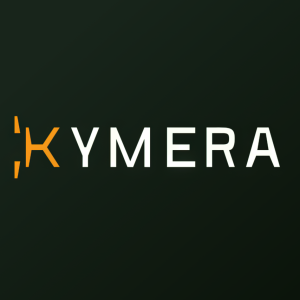Kymera Therapeutics Doses First Patients in Phase 1 Oncology Trials of STAT3 and IRAKIMiD Degraders KT-333 and KT-413
Rhea-AI Summary
Kymera Therapeutics (NASDAQ: KYMR) has initiated Phase 1 clinical trials for two first-in-class protein degraders: KT-333, targeting STAT3 for T cell malignancies, and KT-413, targeting IRAK4 for MYD88-mutant B cell lymphomas. The trials aim to assess the safety, tolerability, and pharmacokinetics of these treatments with initial data expected in the second half of 2022. KT-333 has also received Orphan Drug Designation from the FDA, emphasizing its potential in addressing rare diseases.
Positive
- Initiation of Phase 1 trials for KT-333 and KT-413.
- KT-333 received Orphan Drug Designation from the FDA.
Negative
- None.
News Market Reaction
On the day this news was published, KYMR declined 1.94%, reflecting a mild negative market reaction.
Data tracked by StockTitan Argus on the day of publication.
KT-333 is a first-in-class heterobifunctional degrader of the transcriptional regulator STAT3 in development for T cell malignancies and solid tumors
KT-413 is a first-in-class degrader of IRAK4 and the IMiD substrates Ikaros and Aiolos in development for MYD88-mutant B cell lymphomas
Initial safety and proof-of-mechanism clinical data for both programs to be shared in second half of 2022
WATERTOWN, Mass., June 15, 2022 /PRNewswire/ -- Kymera Therapeutics, Inc. (NASDAQ: KYMR), a clinical-stage biopharmaceutical company advancing targeted protein degradation to deliver novel small molecule protein degrader medicines, has recently dosed the first patients in separate Phase 1 clinical trials evaluating the STAT3 degrader KT-333 and the IRAKIMiD degrader KT-413. The KT-333 trial includes patients with relapsed/refractory liquid and solid tumors, including T cell lymphomas and leukemia, and the KT-413 study is enrolling patients with relapsed/refractory B cell lymphomas, including MYD88-mutant diffuse large B cell lymphoma (DLBCL).
"These programs demonstrate the potential for targeted protein degradation to target critical nodes that traditional modalities can't effectively address, offering a precision medicine approach to challenging cancers," said Nello Mainolfi, PhD, Co-Founder, President and CEO of Kymera Therapeutics. "The initiation of dosing in these studies represents important progress for Kymera toward understanding the pharmacology and safety of these first-in-class investigational medicines, and we look forward to sharing initial dose escalation clinical data later this year."
About the KT-333 Clinical Program
A target long considered "undruggable," STAT3 is a transcriptional regulator that has been linked to numerous cancers and other inflammatory and autoimmune diseases. KT-333 is a potent and selective heterobifunctional small molecule protein degrader of the STAT3 protein in development for oncology indications.
The Phase 1 trial will evaluate the safety, tolerability, PK/PD and clinical activity of KT-333 in adult patients with relapsed and/or refractory lymphomas and solid tumors. The first stage of the study will explore escalating doses of KT-333. The second stage will consist of four expansion cohorts to further characterize the safety, tolerability, PK/PD and antitumor activity of KT-333 in relapsed and/or refractory peripheral T-cell lymphoma (PTCL), cutaneous T-cell lymphoma (CTCL), large granular lymphocytic leukemia (LGL-L), and solid tumors.
KT-333 was recently granted Orphan Drug Designation by the U.S. Food and Drug Administration for the treatment of PTCL. This designation provides incentives to encourage the development of medicines for rare diseases.
About the KT-413 Clinical Program
KT-413 is a potent and selective heterobifunctional small molecule protein degrader being developed for MYD88-mutant B cell lymphomas that has the potential to be the first precision medicine for these cancers. KT-413 degrades interleukin-1 receptor associated kinase 4 (IRAK4) and the immunomodulatory imide drug (IMiD) substrates Ikaros and Aiolos. It is being developed initially for the treatment of relapsed/refractory MYD88-mutant DLBCL, with the potential to expand into other MYD88-mutant indications.
The Phase 1 trial will evaluate the safety, tolerability, and PK/PD of KT-413 in patients with relapsed and/or refractory B-cell non-Hodgkin's lymphomas. The first stage will explore escalating doses of single-agent KT-413. The second stage will consist of two expansion cohorts to further characterize the safety, tolerability, PK/PD and antitumor activity of KT-413 in relapsed/refractory MYD88-mutant and MYD88 wild-type DLBCL.
About Kymera Therapeutics
Kymera Therapeutics (Nasdaq: KYMR) is a biopharmaceutical company pioneering the field of targeted protein degradation, a transformative approach to address disease targets and pathways inaccessible with conventional therapeutics. Kymera's Pegasus platform is a powerful drug discovery engine, advancing novel small molecule therapies that harness the body's innate protein recycling machinery to degrade dysregulated, disease-causing proteins. With a focus on undrugged nodes in validated pathways, Kymera is advancing a pipeline of novel therapeutics designed to address the most intractable pathways and provide new treatments for patients. Kymera's initial programs target IRAK4, IRAKIMiD, and STAT3 within the IL-1R/TLR or JAK/STAT pathways, providing the opportunity to treat patients with a broad range of immune-inflammatory diseases, hematologic malignancies, and solid tumors. For more information, visit www.kymeratx.com.
Founded in 2016, Kymera is headquartered in Watertown, Mass. Kymera has been named a "Fierce 15" biotechnology company by Fierce Biotech and has been recognized by the Boston Business Journal as one of Boston's "Best Places to Work." For more information about our people, science, and pipeline, please visit www.kymeratx.com or follow us on Twitter or LinkedIn.
Cautionary Note Regarding Forward-Looking Statements
This press release contains forward-looking statements within the meaning of the Private Securities Litigation Reform Act of 1995, as amended, including, without limitation, implied and express statements regarding its: strategy, business plans and objectives for the IRAKIMiD and STAT3 degrader programs; and plans and timelines for the clinical development of Kymera Therapeutics' product candidates, including the therapeutic potential and clinical benefits thereof. The words "may," "might," "will," "could," "would," "should," "expect," "plan," "anticipate," "intend," "believe," "expect," "estimate," "seek," "predict," "future," "project," "potential," "continue," "target" and similar words or expressions are intended to identify forward-looking statements, although not all forward-looking statements contain these identifying words. Any forward-looking statements in this press release are based on management's current expectations and beliefs and are subject to a number of risks, uncertainties and important factors that may cause actual events or results to differ materially from those expressed or implied by any forward-looking statements contained in this press release, including, without limitation, risks associated with: the impact of COVID-19 on countries or regions in which we have operations or do business, as well as on the timing and anticipated results of our current preclinical studies and future clinical trials, strategy and future operations; the delay of any current preclinical studies or future clinical trials or the development of Kymera Therapeutics' drug candidates; the risk that the results of current preclinical studies may not be predictive of future results in connection with future clinical trials; Kymera Therapeutics' ability to successfully demonstrate the safety and efficacy of its drug candidates; the timing and outcome of the Company's planned interactions with regulatory authorities; and obtaining, maintaining and protecting its intellectual property. These and other risks and uncertainties are described in greater detail in the section entitled "Risk Factors" in the Quarterly Report on Form 10-Q for the period ended March 31, 2022, filed on May 3, 2022, as well as discussions of potential risks, uncertainties, and other important factors in Kymera Therapeutics' subsequent filings with the Securities and Exchange Commission. In addition, any forward-looking statements represent Kymera Therapeutics' views only as of today and should not be relied upon as representing its views as of any subsequent date. Kymera Therapeutics explicitly disclaims any obligation to update any forward-looking statements. No representations or warranties (expressed or implied) are made about the accuracy of any such forward-looking statements.
![]() View original content to download multimedia:https://www.prnewswire.com/news-releases/kymera-therapeutics-doses-first-patients-in-phase-1-oncology-trials-of-stat3-and-irakimid-degraders-kt-333-and-kt-413-301568098.html
View original content to download multimedia:https://www.prnewswire.com/news-releases/kymera-therapeutics-doses-first-patients-in-phase-1-oncology-trials-of-stat3-and-irakimid-degraders-kt-333-and-kt-413-301568098.html
SOURCE Kymera Therapeutics Inc.








